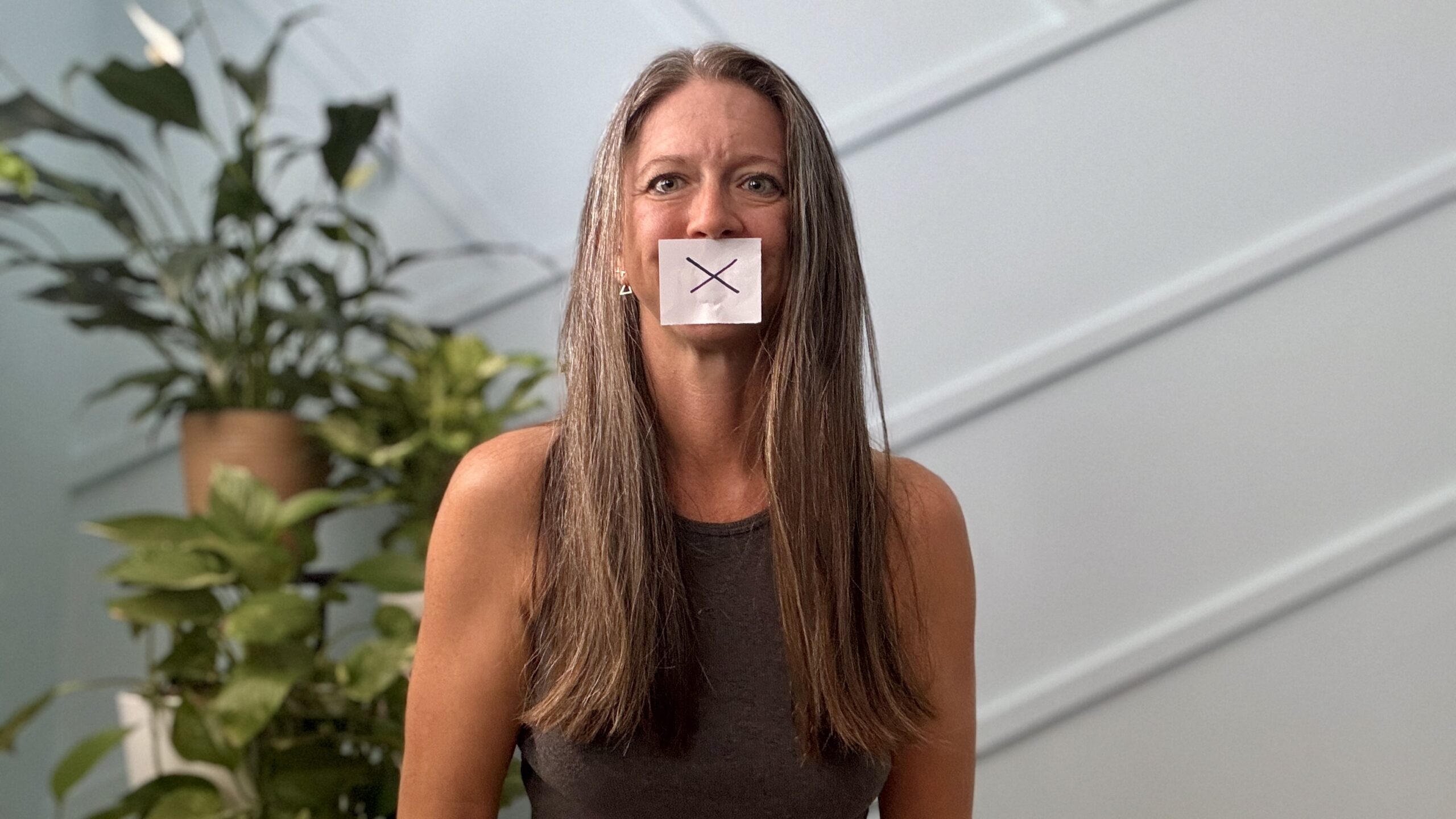In our daily lives, we often carry burdens that weigh us down, trapping us in a cycle of fear and doubt and hindering our ability to live fully and enjoy life. These burdens can result from dwelling on past mistakes or being overwhelmed by present anxieties. But there is hope! Amid our struggles, Jesus offers us a path to true freedom – a freedom that comes from letting go and surrendering our burdens to Him. The complementary practices of yoga and mindfulness can aid us and be a practical tool to help us let it go. By embracing the wisdom of these practices, we can find true liberation and live with a sense of peace and serenity amid life’s challenges.
The concept of “letting go” resonates deeply with many of us. We hear it in self-help books, therapy sessions, and motivational speeches. But what does it truly mean to let go, and why is it essential in our faith journey?
The Nature of Our Burdens
To understand the significance, we must first recognize the nature of our burdens. In Matthew 11:28-30, Jesus invites us, saying, “Come to me, all you who are weary and burdened, and I will give you rest. Take my yoke upon you and learn from me, for I am gentle and humble in heart, and you will find rest for your souls. For my yoke is easy, and my burden is light.”
Here, Jesus acknowledges the reality of our burdens – the weariness and heaviness that we carry with us. But He also offers us a solution – to come to Him and exchange our heavy burdens for His light yoke. The exchange happening here is not physical but a transformation of our spiritual and emotional state. It requires us to release our grip on control and trust in His sovereignty.
Letting Go Is an Act of Faith
Letting go is an act of faith – it requires us to relinquish our desires, worries, and fears to someone else. It’s about releasing our need for validation and finding our identity solely in Christ. In Philippians 4:6-7, we are reminded, “Do not be anxious about anything, but in every situation, by prayer and petition, with thanksgiving, present your requests to God. And the peace of God, which transcends all understanding, will guard your hearts and your minds in Christ Jesus.”
When we surrender our concerns to God through prayer, we open ourselves up to His peace—a peace that surpasses human comprehension. This peace is not dependent on our circumstances but is rooted in our relationship with Christ. It reassures us of God’s presence and His faithfulness, even in the midst of life’s storms.
Why We Need Jesus to Really Let It Go
But why do we need Jesus specifically to experience this kind of freedom? The answer lies in the nature of His sacrifice and His love for us. In John 3:16, we are reminded, “For God so loved the world that he gave his one and only Son, that whoever believes in him shall not perish but have eternal life.”
Jesus’ death on the cross was more than just a historical event – it was a divine act of love that broke the chains of sin and death. Through His sacrifice, Jesus made a way for us to be reconciled to God and experience true freedom. As it says in Galatians 5:1, “It is for freedom that Christ has set us free. Stand firm, then, and do not let yourselves be burdened again by a yoke of slavery.”
In Jesus, we find freedom from the guilt and shame of our past mistakes. We no longer have to carry the weight of our sins because Jesus bore them on the cross. His grace covers our shortcomings, and His mercy offers us a fresh start each day.
Moreover, Jesus empowers us to release bitterness, resentment, and unforgiveness. In Matthew 6:14-15, He instructs us, “For if you forgive other people when they sin against you, your heavenly Father will also forgive you. But if you do not forgive others their sins, your Father will not forgive your sins.”
Through His example and teachings, Jesus shows us how to forgive others as He has forgiven us. When we release the grip of unforgiveness, we free ourselves from the bondage of resentment and open our hearts to receive God’s healing and restoration.
So, why do we need Jesus to really “let it go“? He is the source of our freedom — offering us rest for our souls and peace that surpasses understanding. In Him, we find forgiveness, healing, and purpose. Letting go is not a one-time event but a daily surrender to His will and ways.
Practical Tools to Help Us Let It Go
Even if we understand the importance of surrendering our burdens to Jesus, we may still need practical tools to support our journey of letting go. While our faith provides us with the strength, guidance, and reason to let things go, we live in a world filled with stressors and challenges that can weigh heavily on our hearts and minds. In such moments, practices such as yoga and mindfulness can serve as valuable resources to help us release our burdens to God.
Here are 16 practical ways to help you cast your cares on Jesus:
Acknowledge What No Longer Serves You: Take some time to reflect on your habits, relationships, and belongings, and ask yourself if they contribute positively to your life. If the answer is no, then it might be time to let go of those things.
Practice Mindfulness: Cultivate awareness of your thoughts and emotions through mindfulness practices such as meditation or deep breathing exercises. When you observe your thoughts without judgment, you gain clarity on what you need to release.
Forgive Yourself and Others: Holding onto grudges and resentment only poisons your own mind. Practice forgiveness, both towards yourself and others. Release the burden of past hurts and embrace the freedom that forgiveness brings.
Declutter Your Physical Space: A cluttered environment can create mental clutter. Take time to declutter your living and working spaces. Donate or discard items that no longer serve a purpose, and create a serene environment that nurtures your soul.
Set Boundaries: Learn to say no to things that drain your energy,detract from your well-being, or don’t support your goals. Set healthy boundaries in your relationships and commitments, prioritizing your own needs and values.
Release Expectations: Often, we cling to expectations of how things should be, leading to disappointment and frustration when reality doesn’t align. Practice letting go of rigid expectations and embrace life with all its imperfections and surprises.
Embrace Impermanence: Understand that change is inevitable, and everything is transient. Rather than resisting change, embrace it as a natural part of life. This mindset shift can help you navigate transitions with grace and ease.
Focus on the Present Moment: Letting go requires anchoring yourself in the present moment. Instead of dwelling on the past or worrying about the future, focus on the here and now. Find joy in simple pleasures and appreciate the beauty around you.
Practice Self-Compassion: Be gentle with yourself on this journey of letting go. Treat yourself with kindness and compassion, especially when faced with challenges or setbacks. Try to view yourself in the light of God’s love and forgiveness.
Connect with Nature: Spend time in nature to ground yourself and gain perspective. Nature has a way of reminding us of the world’s inherent beauty, helping us let go of unnecessary worries and reconnect with our true essence.
Express Gratitude: Cultivate a mindset of gratitude by acknowledging the blessings in your life, both big and small. Gratitude shifts your focus from what you lack to what you have, fostering a sense of abundance and contentment.
Seek Support: Don’t be afraid to reach out for support when needed. Whether it’s friends, family, or a therapist, having a support system can provide guidance and encouragement as you navigate the process of letting go.
Practice Non-Attachment: Letting go doesn’t mean detaching yourself from life or becoming indifferent. Instead, it’s about embracing life fully while holding onto things lightly. Practice non-attachment by surrendering the need to control outcomes and trusting in God.
Celebrate Your Progress: Celebrate each step forward on your journey of letting go. Acknowledge the progress you’ve made and the growth you’ve experienced. Celebrating small victories reinforces your commitment to self-growth and empowers you to keep moving forward.
Cultivate Self-Awareness: Develop a deeper understanding of yourself and your patterns through self-reflection and introspection. By becoming aware of what triggers your attachments and resistance, you can begin to unravel them and let them go.
Prayer: This is the most crucial step in releasing our burdens. In prayer, we find strength, comfort, and renewal. Prayer enables us to embrace the freedom that comes from surrendering to God’s will and finding solace in the knowledge that He hears our cries and understands our hearts.
As we pour out our worries, fears, and desires in prayer, we open ourselves to God’s peace and guidance. Ask the Lord to mold your heart and make it more like Jesus, and over time, you’ll find it easier and easier to focus on what matters and let go of the rest.
By integrating these practical tools with our faith, we can approach our struggles with a holistic mindset. This allows us to experience the fullness of God’s grace as we journey toward greater peace and freedom.
As we navigate through life, may we continuously surrender our worries to Jesus and experience the liberation that comes from placing our complete trust in Him. Let us echo the words of the psalmist in Psalm 55:22, “Cast your cares on the Lord, and he will sustain you; he will never let the righteous be shaken.” In Jesus, we discover genuine freedom – freedom to live, love, and let go.
Tonya is a 500hr RYT based in Coastal Mississippi. She loves that she gets to share the joy and healing that yoga brought to her life. In addition to teaching yoga, she flips houses with her husband. Tonya is a travel enthusiast who loves the outdoors and adventure. You'll find her at the local beach, volunteering at the animal shelter, and playing with her forever and foster dogs.





0 Comments